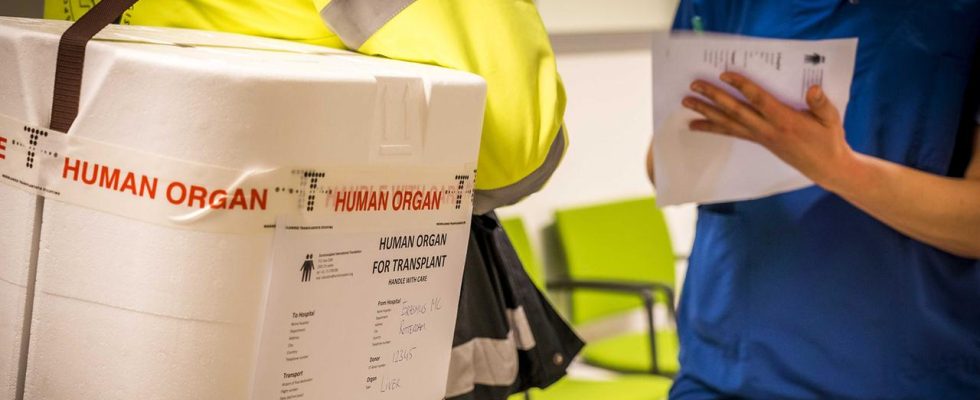More than 8,000 people in Germany are waiting for a donor organ. At the same time, the number of organ donations remains at a low level. Now the Federal Council wants to increase it with the so-called contradiction solution.
In view of the low number of organ donations for years, the federal states are pushing for a fundamental change in the legal rules for this. A resolution states that the current extended consent solution should be replaced by an objection solution.
This means that the consent of the person concerned or a close relative or an authorized representative would no longer be required for organ removal. In principle, every person would be considered an organ donor unless they objected to this during their lifetime – or one of their next of kin does so after their death.
Inclusion in that Transplantation law
The adopted resolution calls on the Federal Government to draft a bill to ensure that this contradiction solution is included in the Transplantation Act. The reason given is that the previous regulation has not proven successful in practice.
Despite intensive information campaigns, according to surveys, only around a third of the population made a self-determined decision about organ donation and recorded it on an ID card, it was said. In practice, less than 20 percent of the cases of potential organ donors have a documented will in writing.
“In the vast majority of cases, the decision must be made by the relatives, who are often overwhelmed by the burden of decision-making in the acute situation of the death of a close relative and then either refuse or not make a decision at all,” the resolution says.
Germany is one of the recipient countries
The resolution points out that a total of 8,505 patients were on the active waiting list as of January 1, 2023. In the previous year only 2,662 organs were donated.
“Germany is one of the recipient countries when it comes to organ donation and is nowhere near making the contribution to organ donation that it could and should make,” said Berlin’s Health Senator Ina Czyborra (SPD). “To be honest, I’m ashamed of that in front of our neighbors.”
Waiting list of more than 8,000 people
Medical organizations, like Federal Health Minister Karl Lauterbach, had repeatedly campaigned for a new attempt at a solution to the contradiction. North Rhine-Westphalia Health Minister Karl-Josef Laumann (CDU) also referred to the suffering of the more than 8,000 people who are currently on the waiting list for a donor organ in the magazine “stern”.
The Baden-Württemberg Health Minister Manne Lucha (Greens) explained that the big problem is that too few people have documented their willingness to donate because they did not express themselves about it during their lifetime.
Praise from the Federal Medical Association
The German Medical Association also welcomed the Federal Council’s decision. “The contradiction solution can save many lives. It can help to reduce the large gap between the high general willingness to donate and the actual low donation numbers,” explained Chamber President Klaus Reinhardt.
Criticism from Ethics Council member
Meanwhile, the Berlin Catholic theologian Andreas Lob-Hüdepohl opposed a contradictory solution. Organ donation must always remain a voluntary decision, the member of the German Ethics Council told the magazine “Publik Forum”. This is especially true because it is also a decision about one’s own dying process.
Patient advocates demand implementation of measures
The German Foundation for Patient Protection stated that silence on this issue should not mean consent. Instead of wanting to interfere with fundamental rights, the countries should finally step on the gas and implement the measures decided to strengthen the willingness to make decisions.
Leon Vucemilovic, ARD Berlin, tagesschau, December 15, 2023 3:51 p.m

